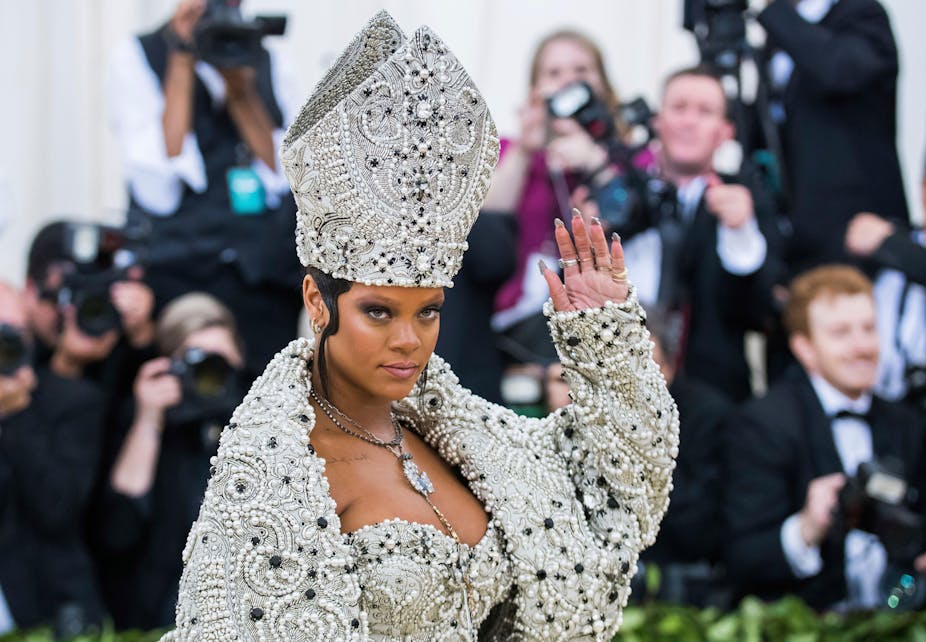Rihanna is no stranger to stirring up controversy, and her recent portrayal of a nun on the Spring 2024 cover of Interview magazine has sparked outrage, with critics calling it “dehumanizing and degrading.” This isn’t the first time Rihanna has incorporated religious themes into her work. For instance, her “sexy pope” outfit at the 2018 Met Gala garnered both praise and criticism, with some finding it sacrilegious given the event’s theme of “heavenly bodies: fashion and the catholic imagination.” However, the Catholic Church itself was involved in the event, with the Archbishop of New York even attending.

Rihanna’s use of religious imagery extends beyond Christianity; in 2021, she faced accusations of cultural appropriation for wearing a pendant depicting the Hindu deity Ganesha, and she apologized the year before for using sacred Islamic text in a lingerie runway show. Like other pop icons such as Beyoncé, Madonna, and Lady Gaga, Rihanna employs religious symbolism as a form of cultural commentary and provocation. Much like Beyoncé’s use of Virgin Mary imagery to challenge notions of sexual purity and race, Rihanna’s portrayal of nunsploitation subverts assumptions about respectability, sexual abstinence, and the objectification of women.

Rihanna’s controversial nun-inspired appearance has ignited criticism as it challenges societal norms regarding women’s attire. By employing religious imagery, she employs a form of playful satire to challenge conventional religious beliefs about women’s bodies.
Christianity has historically emphasized modesty in women’s clothing, with various biblical passages advocating for decency and propriety in dress, such as 1 Timothy 2:9-10, which advises against ostentatious displays of wealth or elaborate hairstyles.
Today, many Christian denominations still uphold dress codes rooted in these traditional beliefs.
The appropriation of nun imagery is deeply ingrained in popular culture, notably seen in iconic films like “The Sound of Music” and “Sister Act,” which feature musical nuns beloved by audiences.
In the collective imagination, nuns are often depicted as disciplined, modest, humble, and celibate. These portrayals in popular films focus on how these seemingly passive figures defy expectations through their involvement in vibrant storylines.
The fascination with nuns in popular culture elicits both curiosity and criticism as it challenges traditional norms. This challenge extends beyond religious boundaries to encompass societal expectations of women and assumptions about their bodies. Notably, while depictions of priests can sometimes be portrayed as attractive or “hot” in pop culture, similar representations of nuns often provoke more controversy without equivalent societal concerns.
